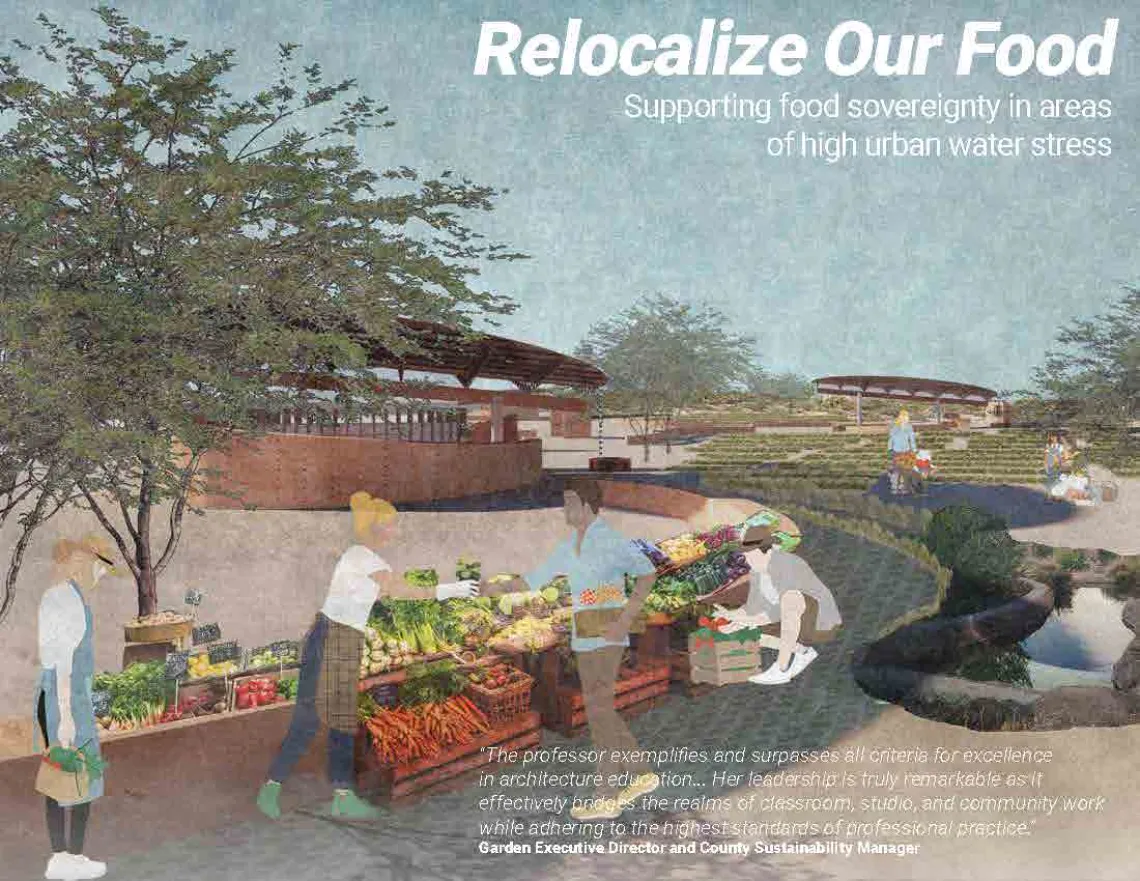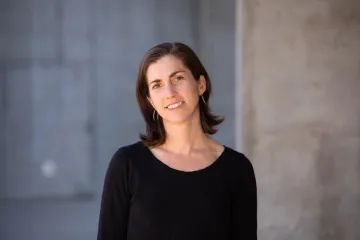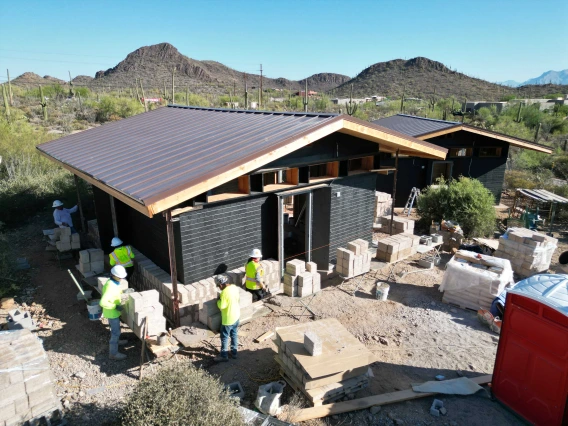Drachman Institute Director Courtney Crosson Earns ACSA Honorable Mention

The Association for Collegiate Schools of Architecture (ACSA) has awarded Drachman Institute Director and Associate Professor Courtney Crosson with a Practice + Leadership Honorable Mention for the Relocalize Our Food project.
The ACSA announces these recipients annually as part of its Architectural Education Awards, recognizing exemplary work by architectural educators in areas such as building design, community collaborations, scholarship, and service.
“It is meaningful to receive the recognition of the multiyear partnership with county and community organizations as one example of the significant work we are doing at CAPLA and through the Drachman Institute,” Crosson said.
Relocalize Our Food is a public-private-academic partnership that involved multidisciplinary researchers, local government agencies, four community food-cultivation organizations, and ten fifth-year B.Arch students. The project was inspired by a need from Pima County to expand Tucson’s urban food system due to equity issues related to healthy and affordable food access in the region.
During the process of addressing this need, questions arose concerning water issues in Tucson and the ecological responsibility associated with expanding Tucson’s food systems.
With this information and input from County staff, Crosson and her students identified four local community partners —Community Food Bank of Southern Arizona, Las Artes Art and Education Program, Merchants Garden, and Mission Garden—focused on redesigning the region’s food system for relocalization across four urban food system types on municipally owned land: river adjacent, indoor agriculture, urban alley, and community garden.
The process helped educate Crosson’s students on the most efficient gains and opportunities for water reuse, emphasizing the connection between indoor and outdoor water use.
“Often these opportunities are lost on projects because the architect is focused on the building’s interior,” Crosson said. “It’s critical to train future architects to think holistically about a site and take responsibility for stewardship of both the site and site’s impact on the larger urban area.”
The research-design work revealed that over 100 percent of nutritional needs could be met with locally sustainable water sources if these typologies were implemented across the 711 acres of available municipal land in current food desert areas.
The project culminated in a public outdoor exhibition at Mission Garden, a large historic garden in Tucson featuring heritage fruit trees, traditional local heirloom crops, and edible Native plants. This event aimed to disseminate the research-design work, stimulate conversation, and provide a platform for gathering feedback on the relocalization of urban food systems.
“I am most proud when students share their work with community partners at the end of a semester and you can see the transformation of the student’s confidence in and appreciation of their design skills,” Crosson said. “The community partners were delighted with what the students produced – both in sensitivity to the specific site with community needs and values, and the quality of the work.”
The project has had a significant impact, with the continued conversation on how to relocalize our urban food systems within sustainable water resources. News outlets have also publicized the work of Relocalize.
"We are still seeking funding to develop the acquired land for the community garden in southern Tucson," Crosson noted. "But we’re heartened by the continued support and expansion of our local food system by our community."




